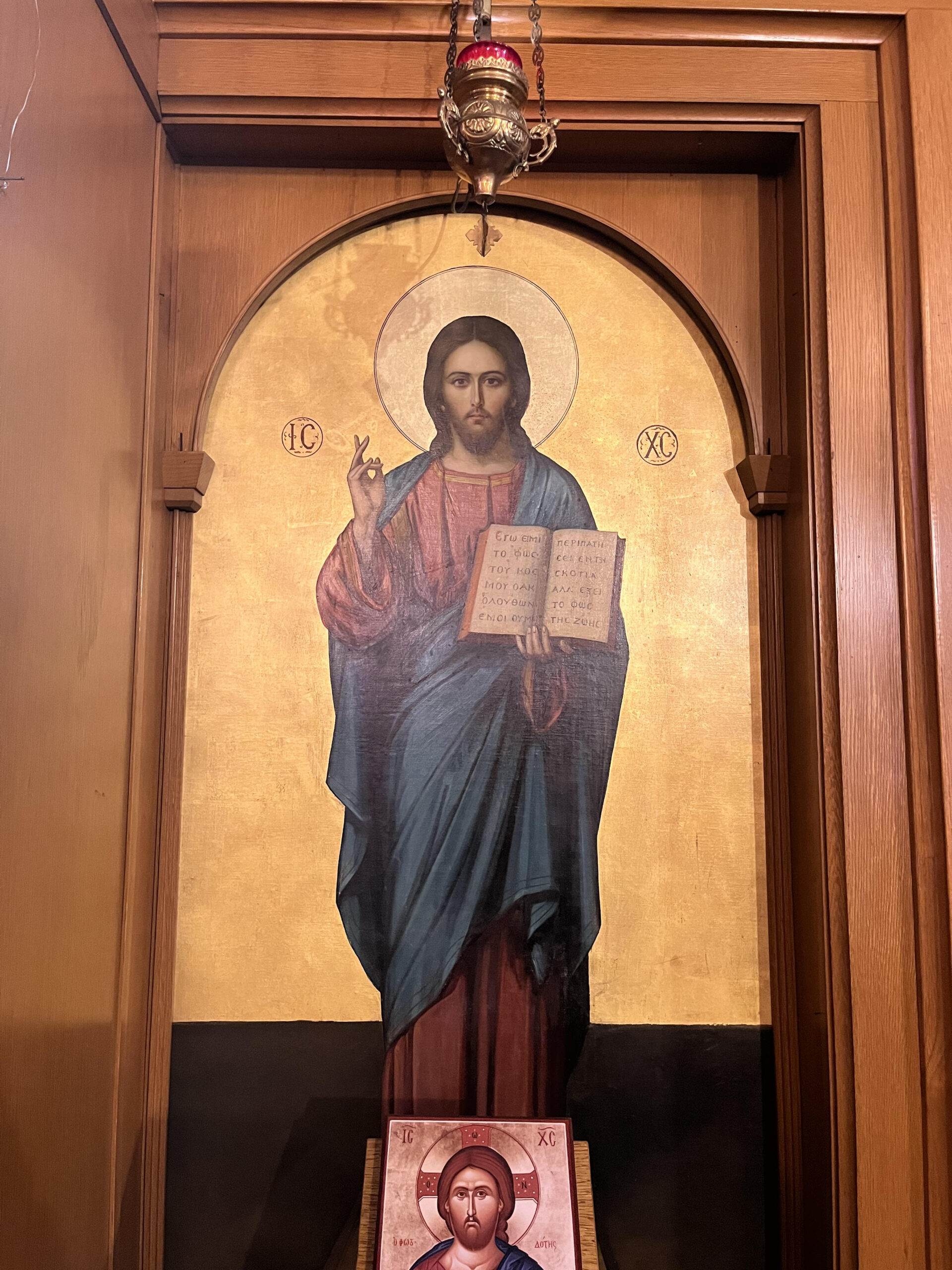He entered Jericho and was passing through. And there was a man named Zacchaeus; he was a chief tax collector, and rich. And he sought to see who Jesus was, but could not, on account of the crowd, because he was small of stature. So he ran on ahead and climbed up into a sycamore tree to see Him, for He was to pass that way. And when Jesus came to the place, he looked up and said to him, “Zacchaeus, make haste and come down; for I must stay at your house today.” So he made haste and came down, and received Him joyfully. And when they saw it they all murmured, “He has gone in to be the guest of a man who is a sinner.” And Zacchaeus stood and said to the Lord, “Behold, Lord, the half of my goods I give to the poor; and if I have defrauded any one of anything, I restore it fourfold.” And Jesus said to him, “Today salvation has come to this house, since he also is a son of Abraham. For the Son of man came to seek and to save the lost.”
Luke 19: 1-10 (15th Sunday of Luke)
Many times we don’t appreciate the power of a single word. The Gospel passage of this Sunday draws its power from a single word, and that is the word “Today.” The word is used twice in the Gospel passage.
The first time the word “today” is used is when Jesus encounters Zacchaeus in the sycamore tree, and tells him to come down from the tree “for I must stay at your house today.” (Luke 19:5) We know the story of Zacchaeus—He was the chief tax collector, and rich. These two things went hand in hand. All tax collectors were rich, because they would go from house to house, assessing taxes arbitrarily, and then confiscating the goods of others, giving to Rome a share of seized property and keeping some for themselves. People disliked the tax collectors. People don’t like the Internal Revenue Service today, and they have an objective tax code. Imagine how much more the tax collectors were hated when the tax system was based on them being arbitrary.
Jesus was passing through Jericho, and Zacchaeus, a short man, wanted to see Jesus. No one was going to make room for the town pariah, so Zacchaeus ran up ahead climbed into a tree. When Jesus walked through crowds, He didn’t see crowds, He saw people. He saw hearts. He saw people who needed help. He gravitated towards those people. And that day, in that moment, He saw Zacchaeus, and He went up to Zacchaeus and said something to Zacchaeus that changed his whole life. He told him, “I MUST come to your house, and I must come TODAY!” What happens if you take the word “today” out of that sentence—it reads almost nonchalant: “Hey, Zacchaeus, I’ll stop by your house some time.” It doesn’t have the power of “I’m coming to your house TODAY!”
What Jesus said, and how He said it, told Zacchaeus that he, the town low-life, had value in the eyes of this famous man who was surrounded by the crowds. In fact, the love of Jesus prompted Zacchaeus to not only repent his sinful ways, but to give half of all that he had to the poor, and to restore four-fold anything he had stolen from anyone.
Jesus then used the word “Today” for a second time, when He said “Today salvation has come to this house, since he also is a son of Abraham.” Today. Not after Zacchaeus served probation, or was publicly scolded, or even until after he repaid all of his debts. Jesus knew that his change of heart was going to lead to his change in activity. Jesus knew that his heart had changed and forgiveness and restoration from Jesus was granted immediately. Again, imagine if Jesus had said “I’ll stop by the house at some point and at some point I may forgive you.” He didn’t say that. He said “I must come to your house TODAY,” and that “salvation was available to Zacchaeus and his household TODAY.”
There is a sense of immediacy in Christ’s desire to come into the abode of our hearts. There is a sense of immediacy in Christ’s desire to love us and to save us. Do we share the same sense of immediacy in opening the door of our hearts to Him? Do we share the same sense of immediacy in accepting His love and working our way to salvation with Him leading?
The final comment on this Gospel comes from the last verse, where Jesus says that “The Son of man came to seek and to save the lost.” (Luke 19:10) When we talk about the basic mission of the church, one of the basic jobs of the church is to seek and to save the lost. We are to look for Zacchaeus. The “Zacchaeus’s of the world are not just the town low-lifes and tax collectors. Zacchaeus is ANYONE who wants to know who Christ is. In that sense, Zacchaeus represents each one of us, from the oldest parishioner, to the one who just walked in the door. From the established family to the new college student who doesn’t know anyone. Zacchaeus is everyone and anyone who wants to know who Christ is.
Sovereign Lord, Your burial has opened Paradise to the human race; and now, redeemed from corruption, we extol You, our God, who has risen. Have mercy on us. (Second Resurrectional Praise, Plagal 2nd Tone, Trans. by Fr. Seraphim Dedes)
Seek Christ TODAY! Open your heart to Him TODAY! And use your words carefully today, because there is power in words and just one word can make or break someone.
